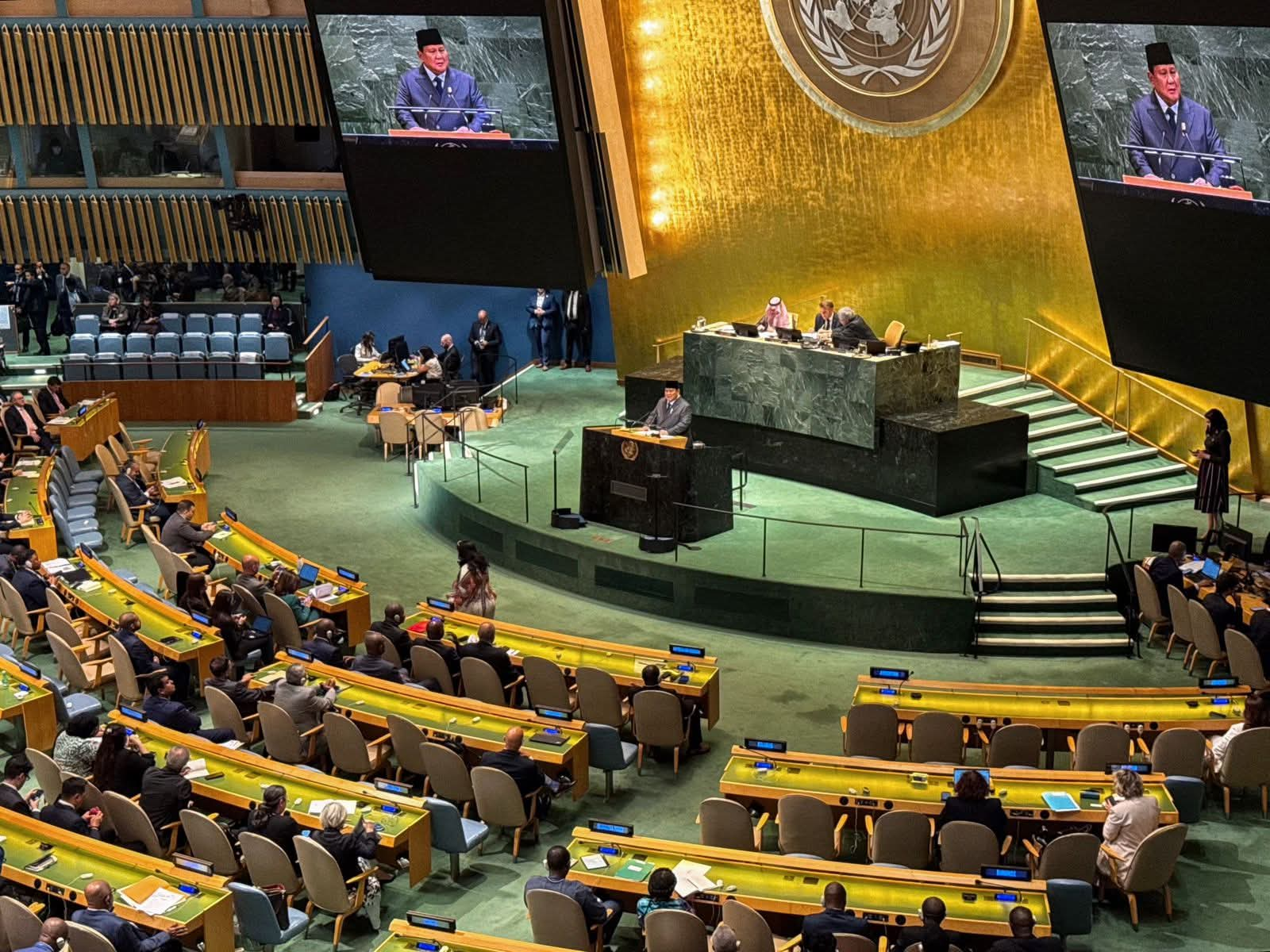Calls for Justice Abroad, Silence at Home: Amnesty Slams Prabowo’s UN Address
JAKARTA, RAKYAT NEWS – Amnesty International Indonesia has raised concerns over President Prabowo Subianto’s speech at the 80th United Nations General Assembly in New York, saying that his statements on justice, peace, and human rights stand in stark contrast to the country’s actual domestic and foreign policies.
Usman Hamid, Executive Director of Amnesty International Indonesia, noted that while the president spoke about equality, peace, and the deployment of 20,000 Indonesian troops for UN peacekeeping missions, he failed to clearly acknowledge the gravity of the ongoing genocide in Palestine, a fact that has already been recognized by the UN and several international human rights organizations including Amnesty.
“The President’s use of the term ‘catastrophe’ to describe the situation in Gaza risks minimizing the responsibility of the Israeli government for what is clearly a genocide,” said Usman.
“Indonesia should take a firm stance, demanding the dismantling of illegal Israeli settlements and halting business or investment ties with entities contributing to genocide, apartheid, and illegal occupation.”
He further emphasized that in accordance with the International Court of Justice (ICJ) Advisory Opinion in July 2024, Indonesia should urge for an end to Israel’s military occupation, which has been a major root cause of systematic and prolonged human rights violations against Palestinians under the framework of Israeli apartheid.
Domestically, Usman criticized the government for failing to ratify the 1998 Rome Statute of the International Criminal Court (ICC), a commitment that had appeared in four previous National Human Rights Action Plans (RANHAM) since 1998 but was dropped from the fifth RANHAM during Prabowo’s administration.
He argued that while international speeches carry symbolic weight, true global credibility comes from consistent domestic action. Beyond Palestine, Indonesia must also address serious human rights violations affecting the Rohingya and take concrete steps to improve its own human rights situation.
Amnesty warned that Indonesia must not ignore its own human rights abuses while criticizing violations abroad. Usman pointed out that post-independence rights violations remain unacknowledged, and past atrocities—particularly those that occurred after the colonial era—have yet to be properly addressed or resolved.
The president’s emphasis on equality and the right to life rang hollow, Amnesty said, given ongoing constraints on freedom of expression and persistent discrimination against minority groups within Indonesia. Since Prabowo took office in October 2024, at least 13 cases of religious-based violence have been reported, highlighting a troubling gap between rhetoric and reality.
Amnesty criticized the government’s treatment of Papua, a region still plagued by militarization, racial discrimination, and unresolved human rights violations.
Policies such as the food estate program in Merauke have ignored the voices of Indigenous communities and threatened their land rights. Amnesty urged the government to match its calls for justice at the UN with real respect for Indigenous rights and resolution of agrarian conflicts—especially as the president’s speech came just a day before National Farmers Day.(Uki)


Tinggalkan Balasan Batalkan balasan